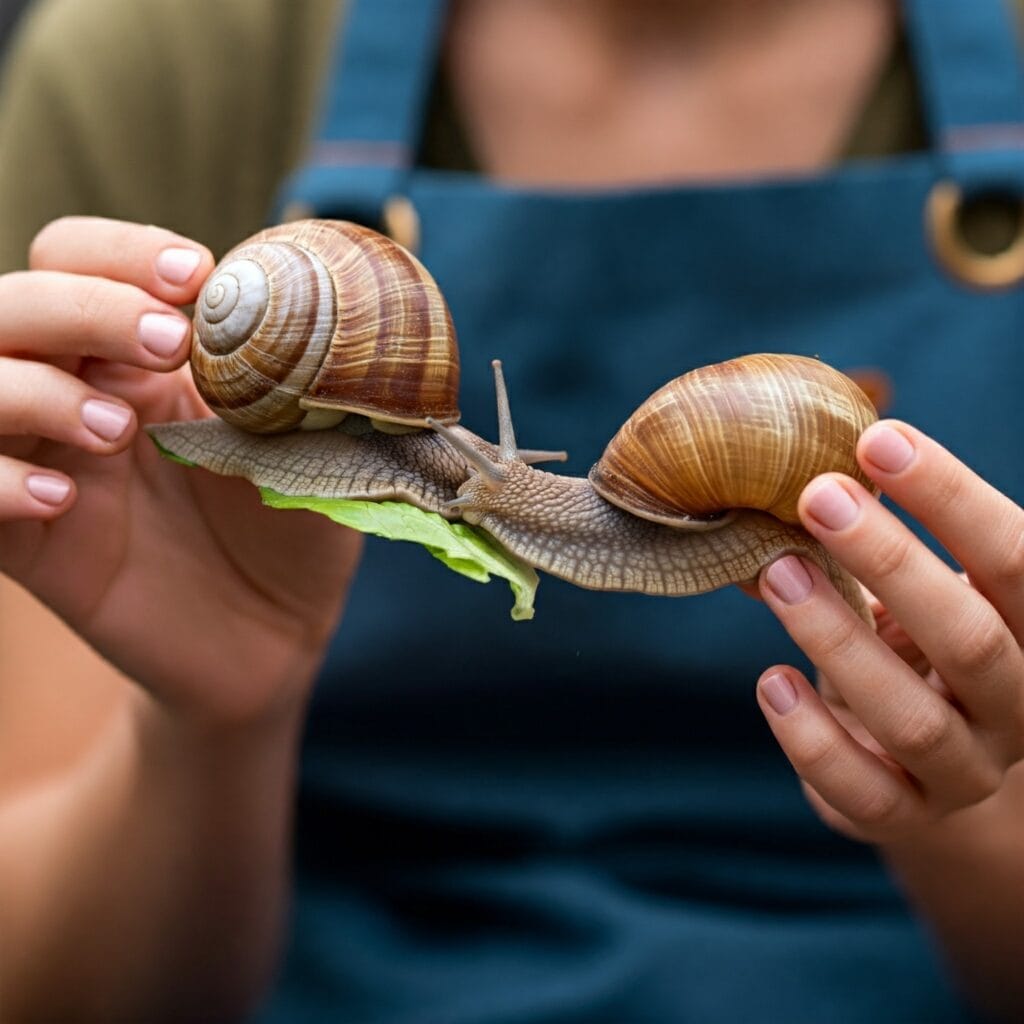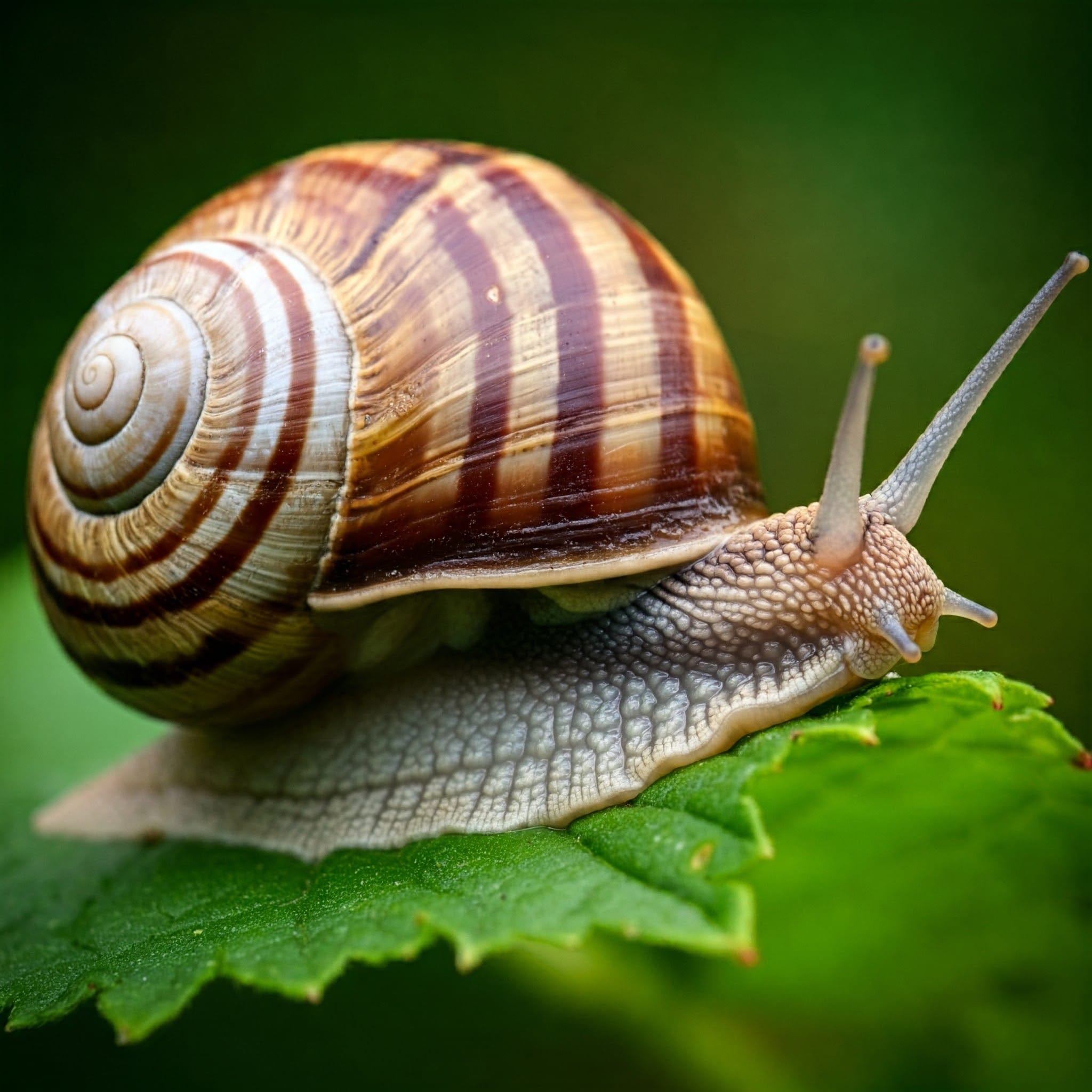Land snails are captivating creatures that are gaining popularity as exotic pets. These gastropods are low-maintenance, eco-friendly, and fascinating to observe, making them ideal companions for anyone looking for a unique pet. In this guide, we explore why land snails, including the giant African land snail, are excellent exotic pets and how to care for them properly.
Why Choose a Land Snail as a Pet?
Land snails may not be cuddly, but they have their own charm. Here’s why they’re becoming popular as exotic pets:
- Low Maintenance: Snails require minimal effort to care for, making them perfect for busy lifestyles.
- Quiet Companions: Unlike traditional pets, snails are silent, making them great for small spaces and shared living situations.
- Educational: Observing a snail’s behaviors can be a fascinating learning experience for children and adults alike.
- Eco-Friendly: Snails produce little waste and can thrive on leftover vegetables and organic matter.
Setting Up a Habitat for Your Pet Snail
Creating a suitable environment is key to ensuring your snail’s health and happiness. Here are the steps to set up their habitat:
1. Choosing the Enclosure
- Use a glass or plastic tank with a secure lid to prevent escapes.
- Ensure proper ventilation by adding air holes to the lid.
- For a single snail, a 5-gallon tank is sufficient; larger tanks are ideal for multiple snails.
2. Substrate and Hiding Places
- Use a substrate such as coconut fiber, soil, or moss to mimic their natural environment.
- Keep the substrate moist but not waterlogged.
- Add hiding spots like small flower pots, bark, or rocks to provide shelter.
3. Temperature and Humidity
- Maintain a temperature range of 65-75°F.
- Ensure humidity levels stay between 70-90%. Mist the enclosure daily to keep it humid.
Feeding Your Land Snail
Land snails have simple dietary needs. Here’s what to feed them:
- Fresh Vegetables and Fruits: Lettuce, cucumber, carrot, apple, and banana are excellent choices.
- Calcium Source: Provide cuttlebone or crushed eggshells to help with shell growth and health.
- Avoid Harmful Foods: Do not feed your snail salty, sugary, or acidic foods like citrus fruits.

Caring for Your Land Snail
Regular maintenance ensures your pet snail thrives:
- Cleaning: Spot clean the enclosure weekly and fully clean it monthly.
- Handling: Handle your snail gently and avoid pulling it off surfaces to prevent shell damage.
- Hydration: Keep the substrate moist and ensure your snail has access to fresh water.
Fun Facts About Land Snails
- Giant African land snails can grow up to 8 inches in length!
- Snails are hermaphrodites, meaning they have both male and female reproductive organs.
- Their slow pace is due to the unique way they move (using a muscular foot and a layer of mucus to glide).
Can i own giant african land snail ?
Giant African Land Snails (GALS) are illegal to own as pets in the United States. This is because they are considered a serious agricultural pest and can carry parasites that are harmful to humans.
However, they are legal to own in some other countries, like the UK.
Here’s a breakdown of why they are illegal in the US:
Invasive Species: GALS reproduce quickly and can easily establish themselves in new environments, outcompeting native snail species and disrupting the ecosystem.
Agricultural Pest: GALS are voracious eaters and can cause significant damage to crops and plants. They have a huge appetite and can consume over 500 different plant species!
Disease Risk: They can carry a parasite called rat lungworm, which can cause meningitis in humans.
To know more details : Why is it illegal to own a Giant African Snail in the United States?
Is a Land Snail the Right Pet for You?
Land snails are perfect for anyone seeking a quiet, low-maintenance exotic pet that’s fascinating to observe. Whether you’re an experienced exotic pet owner or a beginner, these gastropod companions can bring a touch of nature’s charm into your home.
Recommended Supplies
- Tank with Ventilation: Spacious and secure for your snail.
- Coconut Fiber Substrate: Ideal for maintaining moisture and humidity.
- Cuttlebone: A must-have for shell health.
For more insights into exotic pet care, visit Exotic Pet Haven, your trusted guide for unique and fascinating pets!


2 thoughts on “Land Snails: Charming & Unexpected Pets”
Comments are closed.